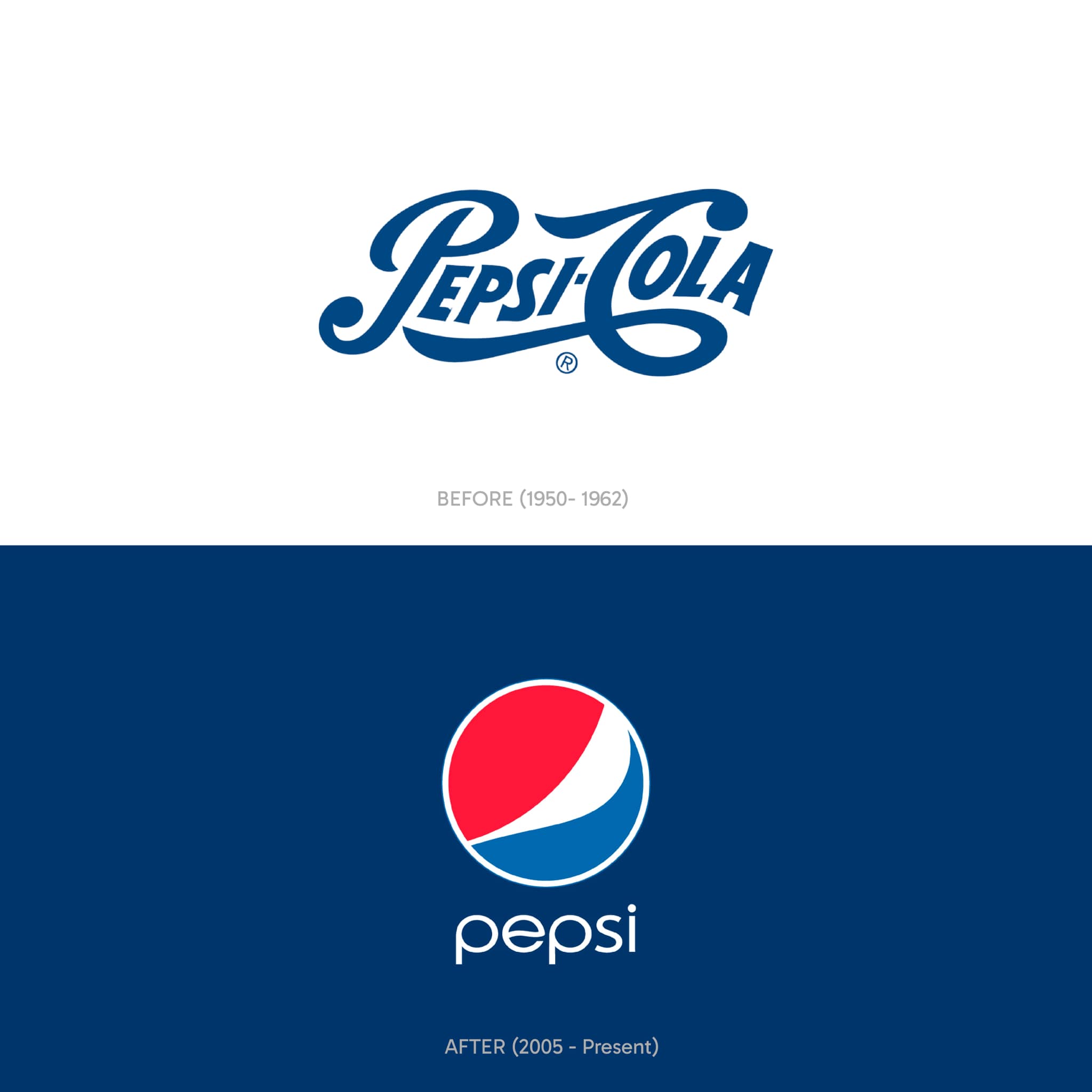
The most successful examples of rebranding.
Published: Tags: BrandingTriggers for Rebranding:
Misalignment
with Values: Does your current brand accurately reflect your company's
core values and mission? If not, a rebrand can bridge the gap and
project a more authentic image.
- Outdated Look: If your logo and visual elements appear dated, they might create an impression of being behind the times. A refresh can modernize your brand and enhance its appeal.
- Shifting Target Audience: As your target audience evolves, your brand positioning might need to adjust. A rebrand can help you connect more effectively with new demographics or customer segments.
- Mergers or Acquisitions: When companies merge or acquire others, their branding often needs to be unified. A rebrand plays a crucial role in creating a cohesive identity for the new entity.
- Negative Associations: If your brand has unfortunately garnered negative associations through events or past practices, a rebrand can help rebuild trust and establish a fresh perspective.
Remember:
Rebranding
is a strategic decision, not a quick fix. It should be carefully
planned and executed with a clear understanding of your desired
outcomes.
Consistency is essential. Ensure a unified
brand experience across all touchpoints, from your logo and website to
marketing materials and customer interactions.
Don't
underestimate the emotional connection customers have with your brand.
Evaluate whether a complete overhaul or a subtle evolution is the best
approach.
By thoughtfully considering these factors
and consulting with experienced branding professionals, you can
determine if a rebrand is the right step for your business and ensure a
successful transition.



